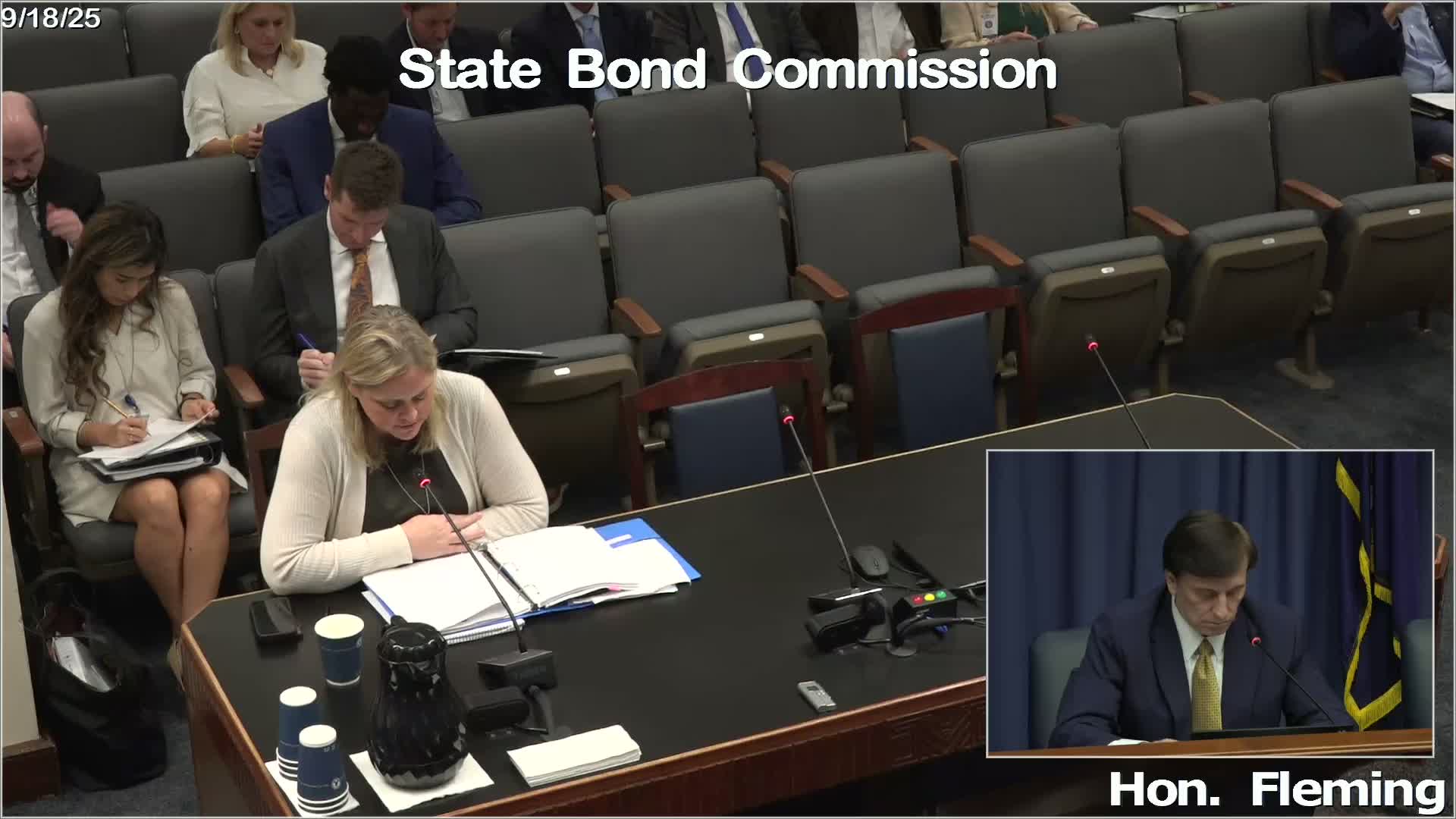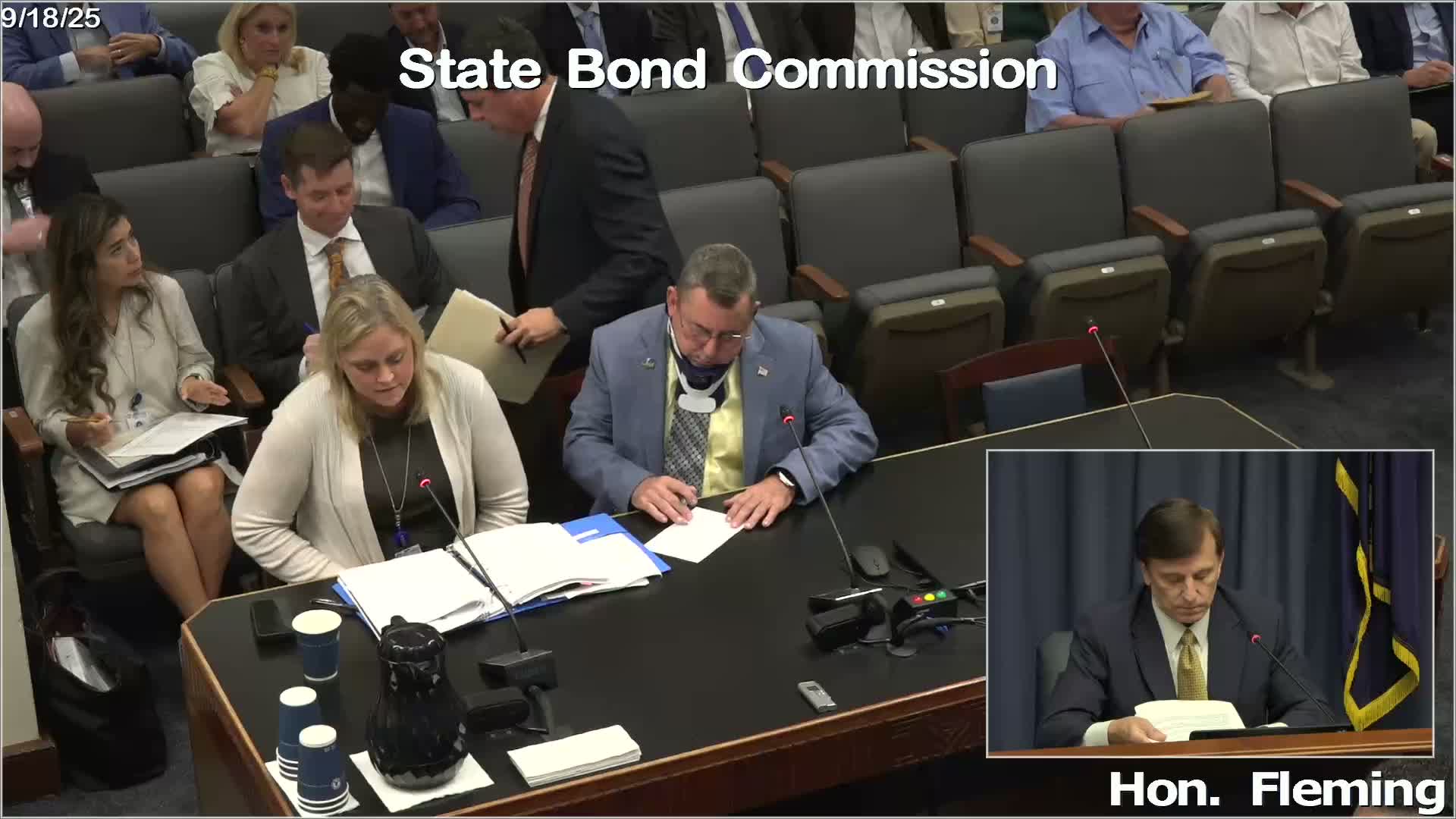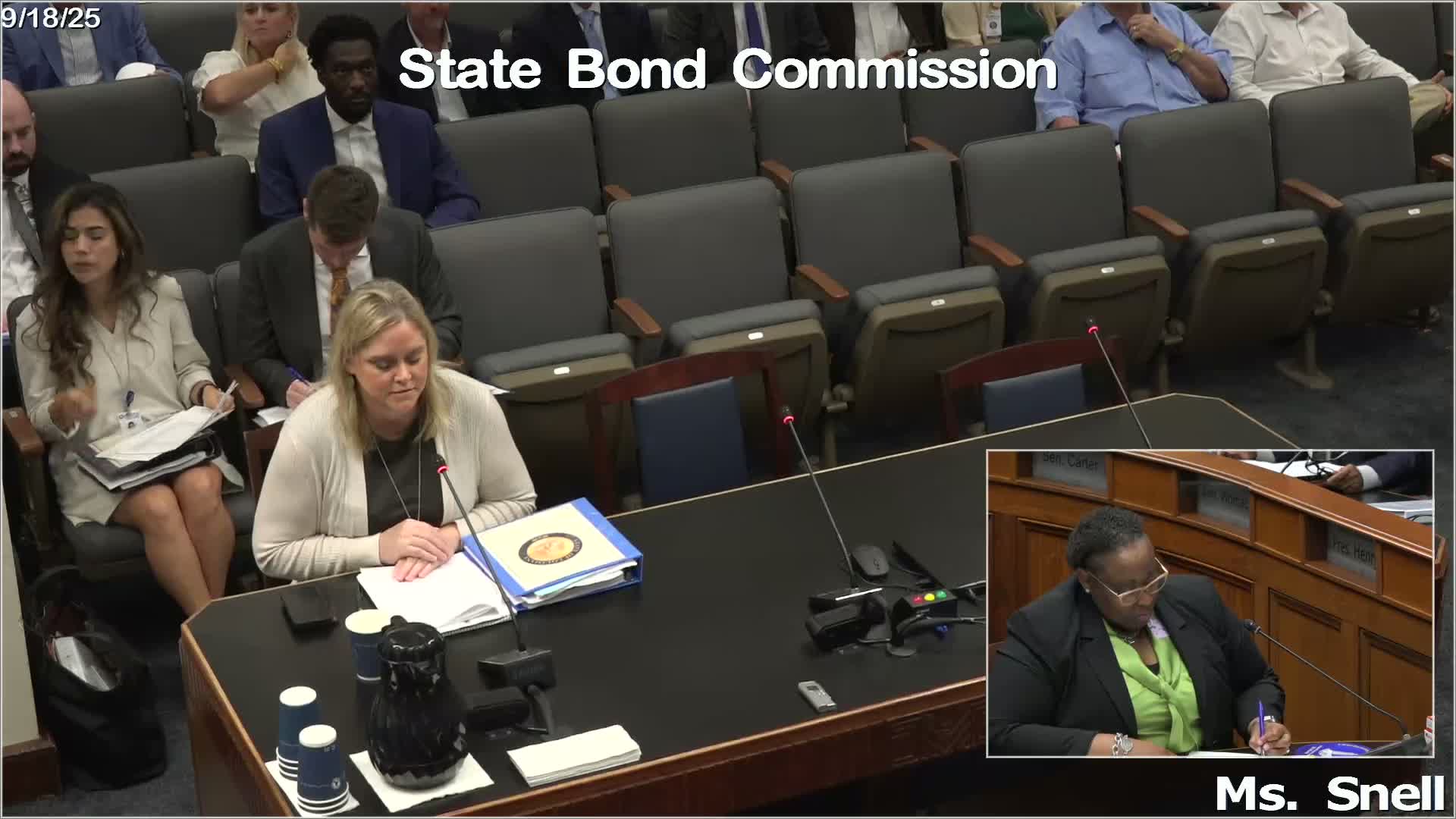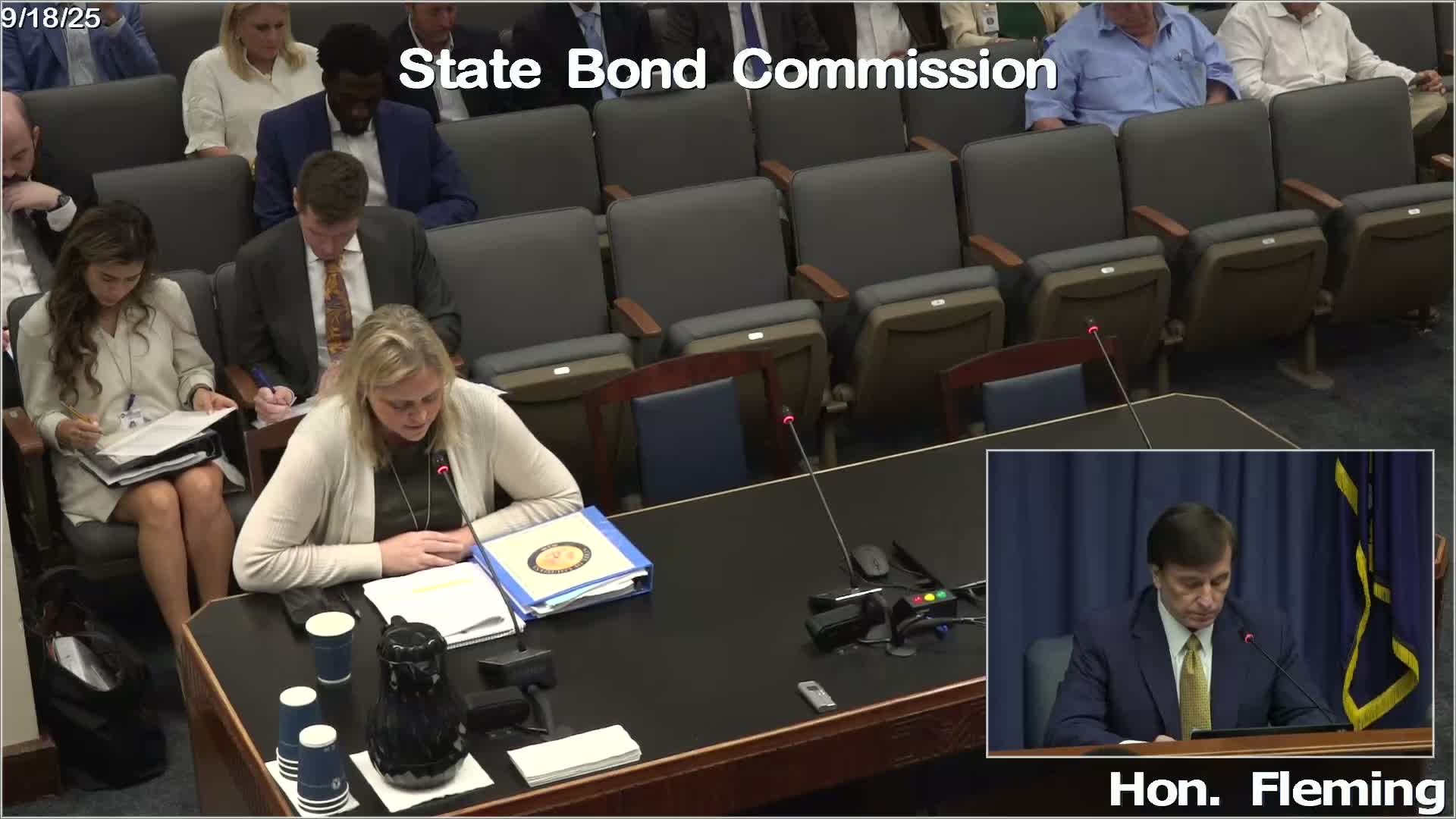Article not found
This article is no longer available. But don't worry—we've gathered other articles that discuss the same topic.

Bond commission authorizes planning to convert or refund $116.5 million gasoline and fuel tax bonds

State Bond Commission approves a series of local loans, bonds and a major sewer refunding

State Bond Commission clears dozens of local propositions for Nov. 15 ballot

